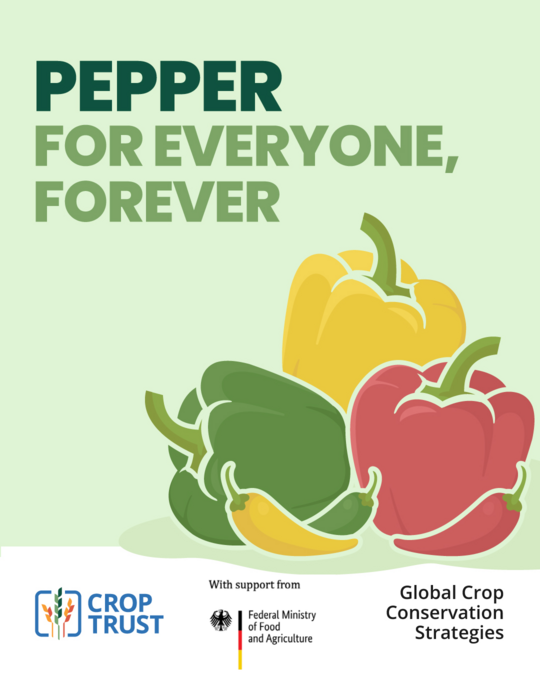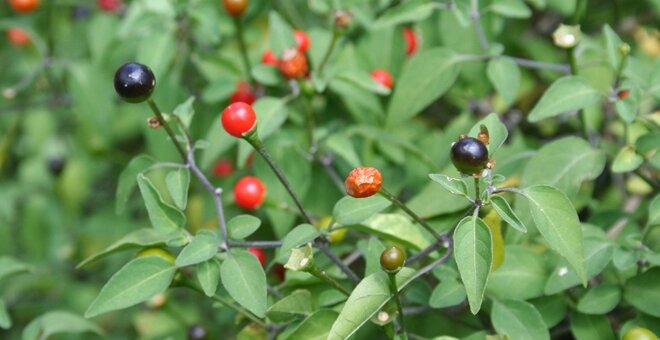The Crop Trust, along with its strategic partners, is developing conservation strategies to protect the genetic diversity of the world’s food crops. This initiative is funded by the German Federal Ministry of Food and Agriculture (BMEL).
What behaves like a chameleon, comes in 50 shades of red, green, orange, yellow and gets sweeter with age? It may sound like a creature from a fairy tale, but in the world of plants, the answer is peppers.
This spicy mainstay of human diets originated in South America about 10,000 years ago comes in a kaleidoscope of colors and has many different shapes and sizes too. Used worldwide as a vegetable, spice, medicine, colorant, and chemical deterrent, peppers are consumed daily by approximately a quarter of the global population.
But we risk losing a lot of pepper diversity, used by plant breeders to produce improved varieties, which farmers can grow to spice up the world's food. That's why, together with partners, the Crop Trust developed a global strategy to conserve peppers' wild and cultivated diversity.
It's the only way to ensure that we can continue to enjoy peperonata, chili con carne, Tabasco sauce and hu pi jian jiao for years to come.
Did you know?
- Chile peppers are used worldwide as a vegetable, spice, medicine, colorant, and chemical deterrent.
- They are consumed daily by approximately a quarter of the world’s population.
- There are five domesticated taxa and and about 37–40 wild taxa in the chile pepper (Capsicum L.) genus.
- Chile peppers are typically a high value crop, providing economic benefits to both smallholders and larger-scale farmers.
- Over the past 60 years there have been increases in both harvested area and tonnage for both fresh or green and dry red chile pepper globally, with particular increases inAsia, where more than two-thirds of production now occurs.
- Chile peppers are also a highly traded commodity worldwide.
- Almost 40% of Capsicum accessions on average worldwide presently require urgent regeneration.
Related stories about Vigna
How Fiery Desert Chilis Can Protect Us from Climate Change
A landscape of thorny agaves, cacti, mesquite trees, and rock is not the first place one might imagine searching for the future of food. How could such a hot, dry place contain some of the keys to nourishing the world?
Colin...
22 Jul 2019
22 Jul 2019


